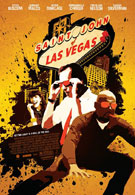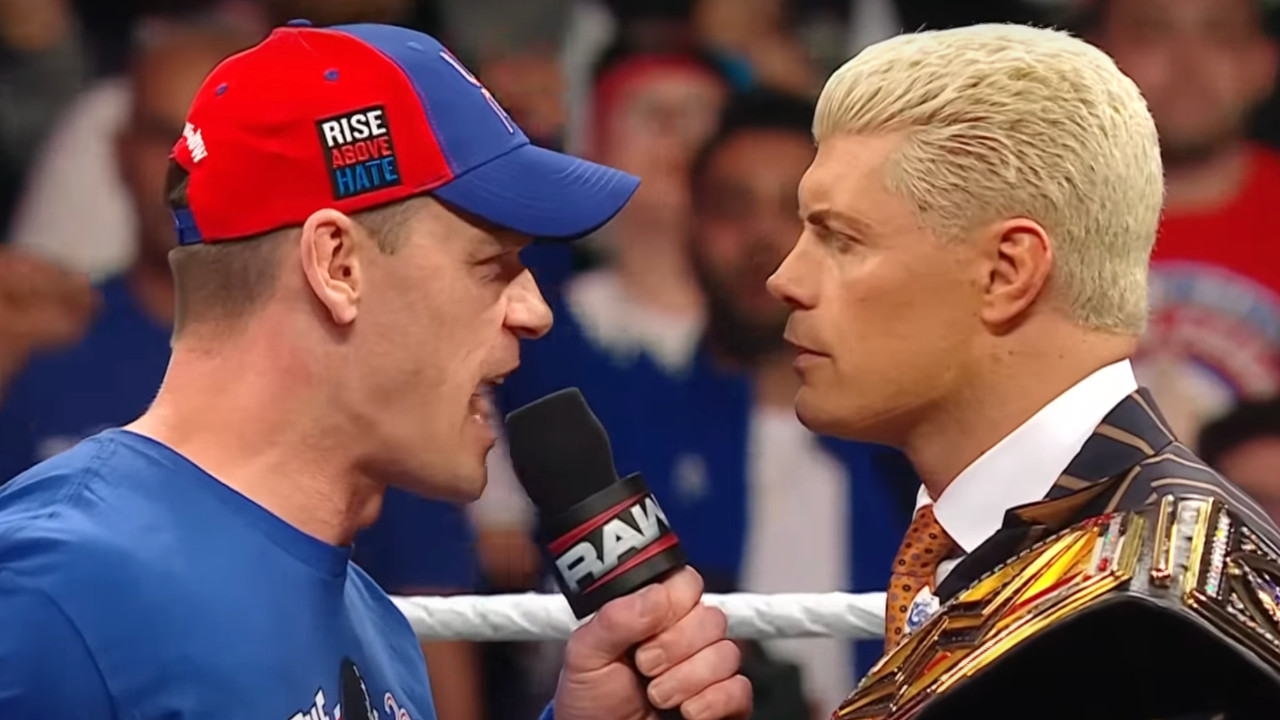Steve Buscemi isn’t a betting man, but he took a chance on a first time writer/director to step out of the character actor realm and take a starring role in Saint John of Las Vegas. It’s far from a masterpiece, but Hue Rhodes manages to do Buscemi justice providing him with a character ripe with emotion and a fascinating complexity. Buscemi returns the favor by powering the film with an engaging oddity.
John (Steve Buscemi) is down on his luck, big time. He flees Las Vegas in an effort to ditch a gambling addiction and get a fresh start. He gets himself a nice home in a quaint neighborhood and a good job working for an auto insurance company. His new innocuous existence is disturbed when his boss, Mr. Townsend (Peter Dinklage), decides to pair him up with the company’s top fraud investigator, Virgil (Romany Malco), to investigate a suspect claim. If he performs well, John could be promoted to a level six adjuster. The only problem is, the location of the assignment is John’s old stomping ground, Las Vegas.
John is a complex character. He’s an average man just trying to make a living, but he’s also a guy battling an intense demon, gambling. After pushing the blackjack tables and roulette chips aside, he finds solace in the minimalistic thrill of winning a couple of bucks on a scratch off card. Once we meet scratch card-crazy John, Rhodes switches the action to the office where John is a completely different guy. He’s level headed, an excellent employee and even a bit of a ladies man. The early establishment of his contradictory qualities makes John a likable yet pathetic character, which fuels the rest of the film.
Virgil is the complete opposite of John. There’s just one side to him. He loves it, he expects you to love it and, if you don’t, screw you. Malco does an excellent job playing the quick talking, all-business man who seemingly enjoys giving John a hard time. While on the road, neither John nor Virgil ever cracks a joke, yet seeing their personalities collide is inherently funny. But Virgil does have a soft side and, even though we never see it firsthand, we get a taste of his sincerity through minimalistic actions and dialogue.
When it comes to the supporting characters, Saint John of Las Vegas takes off in a number of different directions, some of which work, but others are downright ridiculous. Sarah Silverman does a fine job playing John’s love interest, Jill, but there isn’t enough meat on the page for her to bring to life. You get a giggle out of her smiley face-littered desk and bedroom, but it grows old fast. That leaves Jill with nothing but her relationship with John and that’s never justified. We’re expected to accept the fact that she’s in love with him and he’s in love with her without a convincing display of affection. Yes, they interact via the phone through most of the movie, but that doesn’t mean the dialogue couldn’t have been powerful enough to convey the point.
Characters that tank even further are Tim Blake Nelson’s naked cowboy and Jesse Garcia’s park ranger. It’s blatant that both are meant to exemplify some of John’s better qualities, but neither ever makes a serious connection. Those scenes come off as mere hurdles to get to the most magnificent part of the entire film, when John and Virgil visit a carnival human torch. When he’s not lighting himself on fire, the human torch tows cars. It just so happens, he’s the man who towed the car at the center of Virgil and John’s investigation. While questioning the torch about the vehicle, his suit malfunctions causing him to burst into flames every few seconds. The concept is genius and the execution perfect. Even more charming is the fact that the man in the suit, whose face we never see, is John Cho.
Aside from that scene, Saint John of Las Vegas has a hefty helping of trouble spots. The film frequently slows and a number of plot details aren’t backed with sufficient detail or appeal. Even with its problems and overdose of quirk, Saint John manages to strike a chord. There’s something about John that you can’t help but to sympathize with and, to a point, relate to. He’s just a guy trying to live an honest life while struggling to control an addiction. You want him to be happy, you want him to kick the habit and you want him to be the hero yet know the euphoria he imagines is unattainable.
Staff Writer for CinemaBlend.












